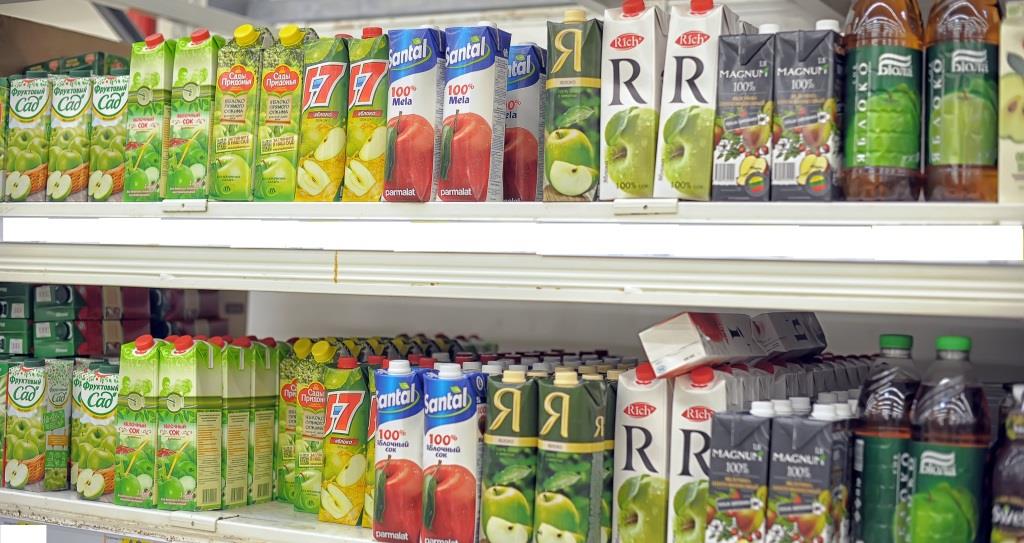Features of juice consumption in Russia
According to the Russian Union of Juice Producers, the Russian juice market equates to some 2.5 billion litres of juice products per year.
On average it reaches nearly 15 litres per capita consumption, which means Russia has a great potential for consumption growth say the union. Russians consume on average one glass of juice a day.
History
The history of the juice industry in Russia began more than 120 years ago, in 1897; the first production of pasteurized grape juice was opened in the Crimea. From this point on juices have become an important part of the Russian diet.
By 1990, the canning industry in the territory of modern Russia produced about 550 million litres of juice and nectars, but consumption significantly exceeded this figure and the missing volume was imported from the southern republics of the Soviet Union, as well as from Bulgaria, Hungary, Romania and Poland. At that time, most enterprises produced juice and nectars from local raw materials, mainly from apples and tomatoes. Usually juices were packed in glass bottles or jars of 1 and 3 litre.
Active introduction of carton packaging and aseptic filling began with the development of the what the union called the ‘new’ Russian juice industry, starting with Tetra-Brik Aseptic equipment.
Today juice production industry in Russia has made great strides: advanced technologies and international quality standards are being introduced, research is being conducted on the effect of juices on the human body, and the raw material base is being strengthened.
Russian taste preferences
According to surveys, residents of Russia primarily prefer apple (17%) and mixed with apple (28%) juices, followed by multifruit (13%), orange (13%) and tomato (8%).
Traditional Russians drink derived from berries taken as ‘mors’* – such as cranberry mors, blueberry mors, cherry mors.
*Mors (Russian: морс) is a non-carbonated Russian fruit drink prepared from berries, mainly from lingonberry and cranberry (although sometimes blueberries, strawberries or raspberries). It’s made by boiling berries with sugar or just mixing pure juice with sweetened water.
Key producers
Russian Union of Juice Producers unites enterprises producing about 90% of all juice products manufactured in Russia. The main players of the juice market are such companies as: PepsiCo, Multon, Sady Pridonya, Progress, Southen Juice company, Sunfruit-Trade, Firma Nectar.
About 65% of Russian juice products come to the shelves at retail in the form of nectars, 20% are juices, and 15% are mors and juice-containing drinks.
Production geography
According to researchers Nielsen, half of Russian production of mineral water falls on 9 regions: Karachaevo-Cherkessia , Moscow Region, Stavropol Territory, Lipetsk Region, Novosibirsk region, Tatarstan, Samara region , Sverdlovsk region and Krasnodar region.
As for sweet carbonated beverages, their main share is produced at the plants of Coca Cola and PepsiCo companies located in the Moscow, Leningrad, Samara, Orel, Sverdlovsk, Novosibirsk and Rostov regions, as well as in the Primorsky, Krasnoyarsk and Krasnodar regions.
The production of juices and nectars is concentrated in St. Petersburg city and the Leningrad Region. Such regions as Lipetsk, Moscow , Volgograd, Perm, and Krasnodar also accounted for a significant share of production.
Juice packaging
Three main packaging types are spread on the Russian market: aseptic bags made of combined material (packaged juices), glass packaging – from simple 3litre jars to branded bottles of unique shape, and PET bottles. Approximately 85% of juice products are packaged in carton, about 12% in glass. A new type of packaging – PET bottles – in Russia holds no more than 5% of the market, while in Europe plastic bottles won an average of 30% with variations from country to country.
About us
Russian Union of Juice Producers (RSPS) is a voluntary non-profit organization that unites 24 enterprises developing the market of juice products in Russia. Since 1999, RSPS supports equal conditions of competition in the industry, develops and implements technical regulations and national standards, conducts systematic scientific research of juice products, promotes healthy diet and lifestyle.
Source: Russian Union of Juice Producers, Nielsen data



